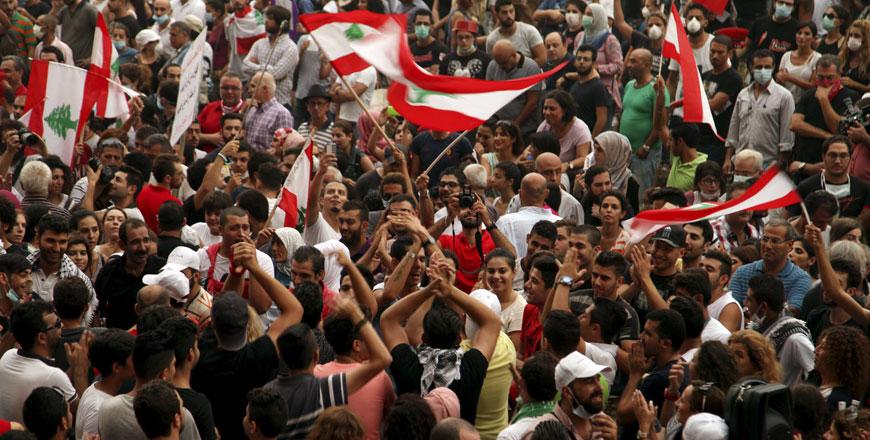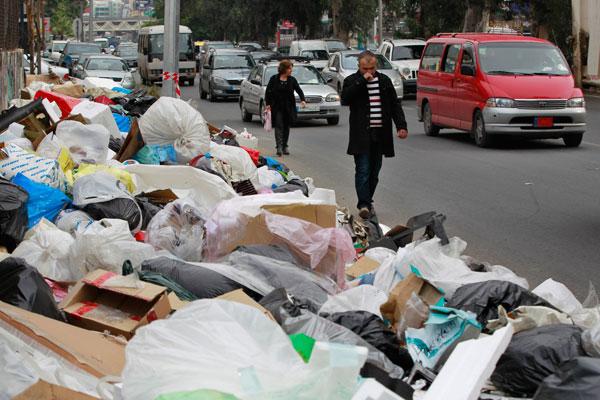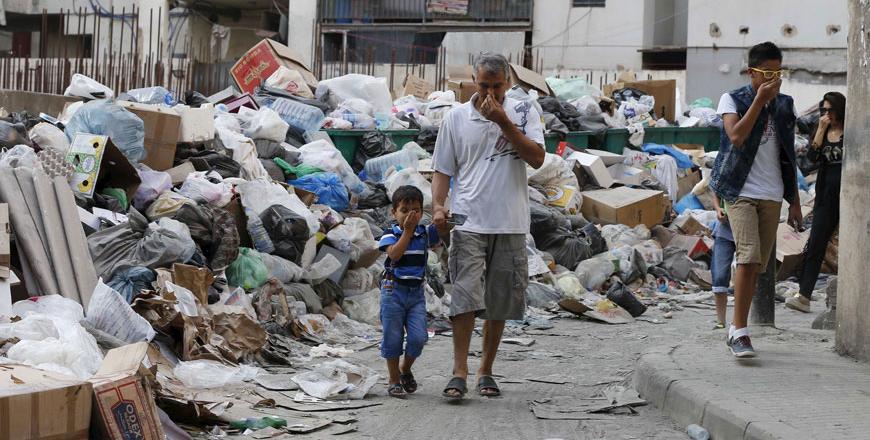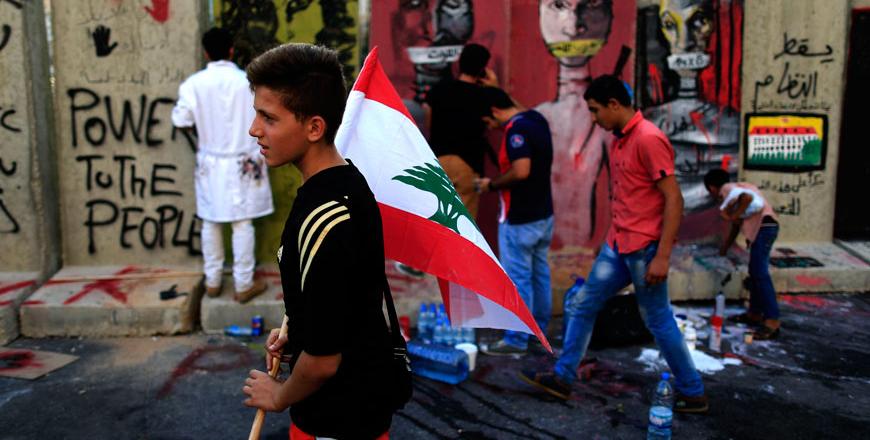You are here
Security forces lock down Beirut as politicians meet, protesters gather
By Reuters - Sep 09,2015 - Last updated at Sep 09,2015

Protesters chant slogans and carry Lebanese national flags during a protest against perceived government failures, including a rubbish disposal crisis, at Martyrs’ Square in downtown Beirut, Lebanon, Wednesday (Reuters photo)
BEIRUT — Lebanese security services locked down central Beirut on Wednesday as ministers and parliamentarians met to discuss ways out of a political crisis that has paralysed government and fueled a wave of street protests.
Activists mobilising against government failures, including a rubbish disposal crisis that has allowed garbage to pile up in Beirut, gathered for protests but were kept away from government buildings by soldiers and barbed wire fences as politicians held meetings behind the barricades.
A "national dialogue" meeting, called for by parliament speaker Nabih Berri, ended with no apparent decision for a way out of a deadlock that has seen the cabinet struggle to take basic decisions and kept the presidency vacant for more than a year.
A spokesman said after the meeting that another session would be held in a week's time.
Ministers, but not a full cabinet, then headed for the government headquarters nearby, the state news agency said, for an emergency cabinet session Prime Minister Tammam Salam had called for earlier in the day.
Meanwhile hundreds of protesters arrived for demonstrations planned to coincide with the meetings.
The demonstrators, who in recent weeks have mobilised in their thousands independently of the main sectarian parties, waved Lebanese flags and held banners calling for change and denouncing what they view as a corrupt political system.
"The people who rebelled on August 29 in Martyrs' square are here to tell them [politicians], your time is over — it is time for change today," activist Samer Mazeh said.
Beirut's central Martyrs' Square has become the focal point of protests after demonstrations at the end of August turned violent.
Demonstrators said the national dialogue was doomed to failure.
Hundreds of soldiers lined entrances to downtown Beirut early on Wednesday, locking down the area before politicians were due to arrive. Armoured vehicles lined streets in the sweltering summer heat as a sandstorm engulfed Lebanon for a second day.
Salam urged politicians ahead of the meetings to "participate in an active and positive way to make this dialogue successful, to help us out of this aggravated crisis".
He also called the emergency cabinet meeting to discuss the rubbish problem, which he said needed an immediate solution.
The garbage is "putting pressure on the people and stirring the people's anger. We share the anger if we cannot reach a cure", Salam said.
Salam has expressed frustration at the failings of his cabinet, which has yet to resolve the garbage problem triggered by the closure of Beirut's main rubbish tip in July.
He threatened to resign last month as protests calling for a solution to the rubbish crisis turned into calls for the cabinet to step down.
"This government is afraid of its people, closing the roads to a constitutional institution - the parliament. We should be protesting today in front of the parliament, peacefully," said Marwan Maalouf, one of the founders of the "You Stink" campaign, in an interview with New TV.
The protests have been organised independently of the main sectarian parties, posing a challenge to their influence.
Parliament, like other institutions of state, has barely functioned in recent years in a political crisis linked to wider regional turmoil, including the war in neighbouring Syria.
Salam's cabinet includes Shiite Muslim group Hizbollah, which is backed by Iran, and the Future Movement, led by the Saudi-backed Sunni politician Saad Al Hariri, together with rival Christian parties.
The presidency reserved for a Maronite Christian has been vacant for more than a year, with no consensus on who should fill it. It was the top item at the national dialogue meeting.
Related Articles
BEIRUT — Lebanon's Cabinet on Monday agreed to export the country's waste in a move that could end a crisis that led to a wave of protests a
BEIRUT — The Lebanese Shiite Muslim group Hizbollah and allied Christian politicians boycotted a Cabinet meeting on Thursday, a sign of risi
BEIRUT — Lebanese protest organisers called for a fresh demonstration against the government on Saturday after two days of rallies that turn
















